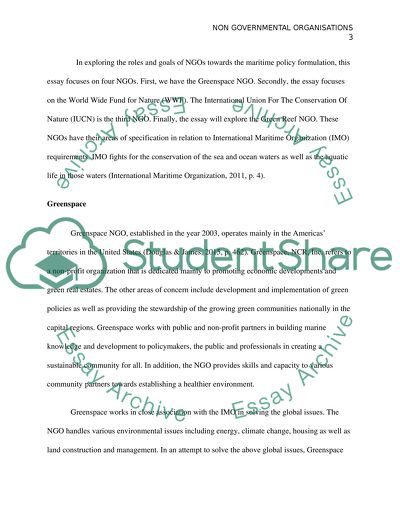Cite this document
(“THE ROLE OF NON GOVERNMENTAL ORGANISATION(NGOs) IN THE FORMULATION OF Essay”, n.d.)
Retrieved from https://studentshare.org/miscellaneous/1694505-the-role-of-non-governmental-organisationngos-in-the-formulation-of-effective-maritime-policies
Retrieved from https://studentshare.org/miscellaneous/1694505-the-role-of-non-governmental-organisationngos-in-the-formulation-of-effective-maritime-policies
(THE ROLE OF NON GOVERNMENTAL ORGANISATION(NGOs) IN THE FORMULATION OF Essay)
https://studentshare.org/miscellaneous/1694505-the-role-of-non-governmental-organisationngos-in-the-formulation-of-effective-maritime-policies.
https://studentshare.org/miscellaneous/1694505-the-role-of-non-governmental-organisationngos-in-the-formulation-of-effective-maritime-policies.
“THE ROLE OF NON GOVERNMENTAL ORGANISATION(NGOs) IN THE FORMULATION OF Essay”, n.d. https://studentshare.org/miscellaneous/1694505-the-role-of-non-governmental-organisationngos-in-the-formulation-of-effective-maritime-policies.


